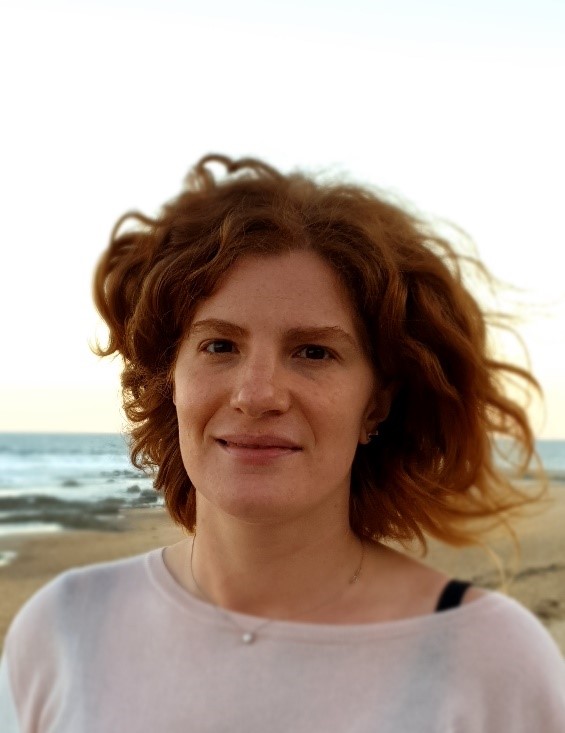SUCS ECR Showcase
Thursday, 26 November 2020. 5pm – 6pm.
This seminar will be delivered via Zoom – Please email chemistry.researchsupport@sydney.edu.au for zoom link and password.
Dr Livia Salvati Manni & Dr William Jorgensen
[Email: livia.salvatimanni@sydney.edu.au & william.jorgensen@sydney.edu.au]
Host: Dr Jonathan Danon
Talk 1: Tailoring lipids for mesophases formation: how shape defines properties
In aqueous systems, lipids can spontaneously assemble and form supramolecular structures with complex geometries. The topology of these structures is strictly correlated to their molecular shape. A new class of monoacylglycerols with designed cyclopropyl modifications in the hydrophobic chains was synthesised in order to study the relationship between molecular structure and mesophase behaviour. These lipids show a unique liquid-crystalline behaviour at low temperatures, enabling the use of LCP crystallisation in conditions never explored before.1
Moreover, the small size of the water channels of one of the LCPs formed by a synthesised lipid can prevent low-temperature crystallization of water, thus creating a state of amorphous water maintenance down to 10 K. The study of water and lipid behaviour unveil a complex lipid/water phase diagram, in which bicontinuous cubic and lamellar liquid crystalline phases containing sub-zero liquid or glassy water, or ice emerge as a competition between the two components, each pushing towards its thermodynamically favoured state.2
References
- Salvati Manni, L., Zabara, A., Osornio, Y. M., Schoppe, J., Batyuk, A., Pluckthun, A., Siegel, J. S., Mezzenga, R. & Landau, E. M. Phase behavior of a designed cyclopropyl analogue of monoolein: implications for low-temperature membrane protein crystallization. Angew. Chem. 54, 1027–1031 (2015).
- Salvati Manni, L., Assenza, S., Duss, M., Vallooran, J. J., Juranyi, F., Jurt, S., Zerbe, O., Landau, E.M. & Mezzenga, R. Soft biomimetic nanoconfinement promotes amorphous water over ice. Nat. Nanotechnol. In press, (2019).
Biography:

Livia Salvati Manni’s research interests focus on the self-assembly of amphiphilic molecules in water and ionic liquids. She obtained her PhD from University of Zurich in 2017, where she was funded by the Forschungskredit selective grant. Between 2017 and 2019 she was a postdoctoral researcher at ETH Zurich. Currently, she is a postdoctoral researcher in the group of Prof Gregory Warr, in the School of Chemistry at the University of Sydney. She has recently been awarded an AINSE ECR fellowship to study dynamics of lipids and water in lipidic mesophases utilizing neutron scattering. She has also obtained an SNF early postdoc mobility grant to develop her research program into the use of lipidic self-assembled nanostructures in biochemistry.
Talk 2: CNS Drug Discovery: A tale of love and pain.
Oxytocin, regarded as the hormone of love, is a neuropeptide that has well known neuromodulatory roles in social affiliative behaviour whilst deficiencies in receptor activation manifest social dysfunction, a pathophysiology concomitant with depression and anxiety. Despite a century of investigation, very few, non-peptidic oxytocin receptor agonist have been identified; WAY-267,464 was the first, identified in the early 2000’s. The ambiguity surrounding the structural components pertinent to its oxytocin receptor activity, coupled with its poor drug like properties, prompted a systematic and thorough investigation of the WAY-267,464 pharmacophore. I will discuss the rationale behind our structural investigation and present the first small molecule, centrally penetrant oxytocin receptor agonist.

Biography:

I completed my undergraduate degree in Medicinal Chemistry at the University of Sydney in 2009. I then embarked on a 1-year RA position at the Brain and Mind Centre where I looked at developing sigma receptor ligands for the treatment of depression. In 2012 I began my PhD under the supervision of Professor Michael Kassiou where I developed oxytocin receptor agonists for the treatment of social dysfunction. I then undertook an industry funded fellowship looking at the development of brain penetrant tubulin inhibitors for the treatment of glioblastoma. In 2018 I left academia and was involved in clinical trial development in the Asia Pacific region with several pharmaceutical companies. In 2019, I was awarded an NHMRC Peter Doherty Fellowship and began my independent career. My primary research focus is in the development of ion-channel modulators for the treatment of a range of neurological

